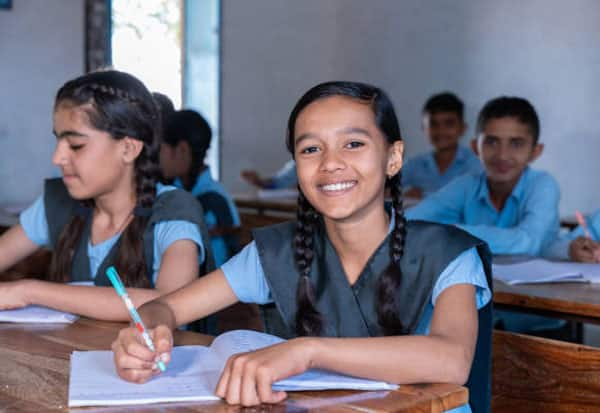/
செய்திகள்
/
Kalvimalar
/
News
/
Principals raise concerns over no proper curriculum for Computer Education
/
Principals raise concerns over no proper curriculum for Computer Education
Principals raise concerns over no proper curriculum for Computer Education
Principals raise concerns over no proper curriculum for Computer Education
UPDATED : பிப் 24, 2025 12:00 AM
ADDED : பிப் 24, 2025 09:50 AM

Chennai: Government school principals in Tamil Nadu have raised concerns over the state's failure to develop a proper curriculum for computer education, despite allocating ₹500 crore under the Information and Communication Technology (ICT) project.
The initiative, part of the centrally sponsored Samagra Shiksha Abhiyan, aims to enhance digital education by integrating the Sarva Shiksha Abhiyan (SSA) and Rashtriya Madhyamik Shiksha Abhiyan (RMSA) programs. The ICT project focuses on setting up high-tech labs, internet facilities, and smart classrooms for students from Class 6 to Plus 2.
High-Tech Labs Without a Structured Curriculum
As part of the initiative, ₹6.40 lakh per school was sanctioned to set up high-tech labs in schools with up to 700 students, with additional funds provided based on student numbers. Additionally, an annual maintenance grant of ₹2.40 lakh per school was allocated to cover internet fees and computer instructor salaries.
In 2022, the Tamil Nadu government sanctioned over ₹500 crore to establish these labs in 6,454 high and higher secondary schools. While the infrastructure has been set up, school heads claim the labs are not being utilized effectively for computer education.
Labs Used for Non-Educational Purposes
Instead of structured IT lessons, these high-tech labs are reportedly used only once a month for activities such as reading comprehension tests, screening of "I am the Principal" videos, online teacher training, and language labs. In higher secondary schools, computer education is provided only for Plus 1 and Plus 2 students, leaving students from Classes 6 to 10 without structured IT lessons.
Despite the large investment, computer instructors remain severely understaffed. Of the 6,454 schools, only 1,172 full-time computer instructors and 763 part-time instructors are available, leaving 5,794 posts vacant.
Comparison with Other States
In contrast, Punjab, which also implemented high-tech labs under the ICT project, appointed over 6,100 trained teachers and introduced computer education from Class 6 onwards. Similarly, private and CBSE schools in Tamil Nadu offer structured IT education, covering computer basics, programming languages, and logical thinking from Class 6.
Concerns Over Fund Utilization
Government school principals argue that despite funds being allocated for teacher salaries, recruitments have not been made, and no formal curriculum has been introduced for Classes 6 to 10. They allege that funds have been misused and question whether the reluctance to introduce computer education in government schools stems from concerns over competition with private institutions.
With thousands of students missing out on IT education, school authorities stress the need for urgent policy intervention to ensure the effective utilization of the ₹500 crore ICT project.


